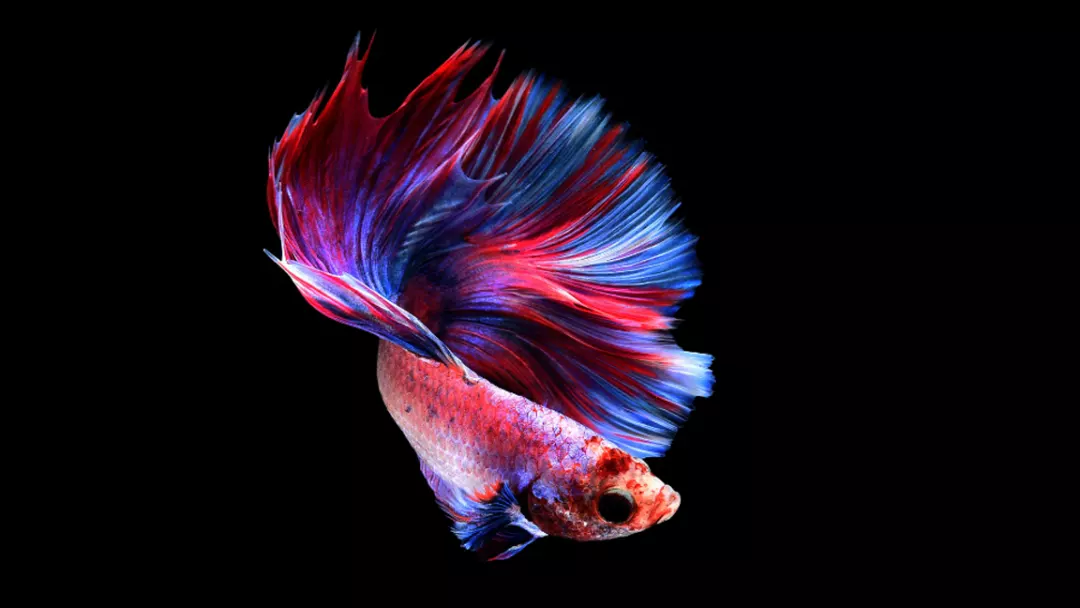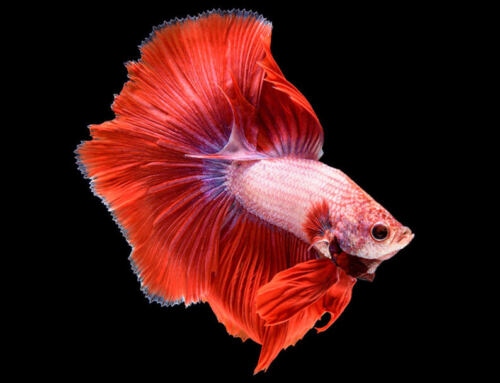Behavior interpretation in fish is notoriously tricky, especially when trying to spot the telltale signs of a dying betta fish. Many new fish owners worry about their aquatic companions but aren’t sure what to look for or which symptoms actually indicate that something is wrong.
Death symptoms in Betta fish typically include listlessness, loss of pigmentation, and elevated anxiety. Your Betta’s life can be extended and you can enjoy it for many more years if you keep looking out for it and its behavior and takes it to a certified fish veterinarian if any of these symptoms are seen.
Maintaining a clean aquarium and providing regular feedings are two of the best preventative measures you can take to extend your fish friend’s life. We have the privilege of being a part of our pets’ entire lives, so even if your Betta bestie passes away, remember that you were their whole world.
What is Betta Fish Behavior

Betta fish are able to identify the people who care for them. When they spot their caretaker coming closer, they are known to swim wildly about in excitement. They have a strong inquisitive nature and will investigate any new objects that are added to their habitat, which helps to keep their minds active.
What Is Betta Fish Behavior Before Death

We can only watch our Betta fishes because they can’t talk. Thus, good aquarists must know Betta’s distress and death signs even more Betta’s wing these things may save a pet or prepare you for the future. Here are a few signs that indicate betta fish behavior before death.
These are the Betta Fish Signs of Dying:
They’re lethargic.
Bettas swim constantly. New Bettas love exploring their tank and learning about their new home. This means that not swimming may be a sign of a serious issue. If your Betta used to be active but now stays in one spot of the tank, something is wrong.
They Stop Eating
Lack of appetite is a major sign. Betta fish should eat well and rarely refuse frozen or live treats, even though they only eat once or twice a day. If you don’t feed them, you might miss this sign.
Thus, monitor your Betta fish’s feeding habits. Even if they’re healthy, you should worry if their feeding patterns change. Especially if Bettas refuse live treats or food.
Their Gills Are Overworked
Gasping and labored breathing indicate distress. Low tank water quality can cause this behavior. If your tank’s water isn’t clean, toxic elements will replace oxygen, poisoning the fish like carbon monoxide poisoning.
See if their gills are working harder than usual. Is its body normal but its gills flared? Does your Betta often surface for quick breaths? Your water parameter may be the problem.
Labored breathing may indicate natural death. Bettas, like humans, degrade as they age, and old fish can slowly lose their ability to breathe.
Stringy White Poop
Bettas excrete short clumps of black or dark/brown material. Departures from this color often indicate distress. Parasitic infections can cause this color and type of poop, which can kill if untreated.
If this happens, visit a trusted fish veterinarian. Even that isn’t guaranteed. Bettas are small and delicate, making treatment and surgery difficult. Your vet may be able to diagnose the issue.
Less Responsive
A Betta that is in good health is very social, which means that it will respond eagerly to any gestures you make. In point of fact, a Betta that is in good health can even be trained. On the other hand, a sick Betta will become noticeably reclusive and uninvolved in its surroundings.
It’s very easy to notice if your Betta doesn’t greet you at the glass when you first get up in the morning since Bettas enjoy interacting with their human companions.
- Their Fins Get Clamped
Our Betta fish have amazing fin shapes and colors. Bettas flaunt their fins all day. Whether it’s to intimidate their reflection or ward off that pesky nerite snail, they can’t stop showing off their fins. However, your Betta may stop doing this.
Especially if your Betta’s fins look clamped this could be the betta fish signs of dying. Clamped fins are bad for many reasons. Stress or a nasty infection may cause their fins to hurt. To avoid worsening it, properly address it.
What Can Be the Reason for Betta Fish’s Death?

Bettas are incredibly resilient fish. Still, there are things you can do and illnesses that can kill your betta. Although old age is a common cause of death for bettas, the following betta fish signs of dying can also prove fatal:
- Ammonia toxicity
- Parasites
- Illnesses caused by fungi
- Diseases of the bladder caused by swimming and similar conditions
- Overeating
- Hurtful tank mates
- Traumatic or Excruciating Stress
Fortunately, with proper fishkeeping, you can avoid most of these causes. Your betta can avoid death from ammonia poisoning if you maintain a spotless aquarium and keep an eye on the readings in its water meter.
Also, bettas that are in good health have robust immune systems and can better fend off parasites, fungi, and other pathogens.
Furthermore, fish can survive many illnesses if you notice a problem and treat it quickly. Always consult a vet if you have any concerns.




